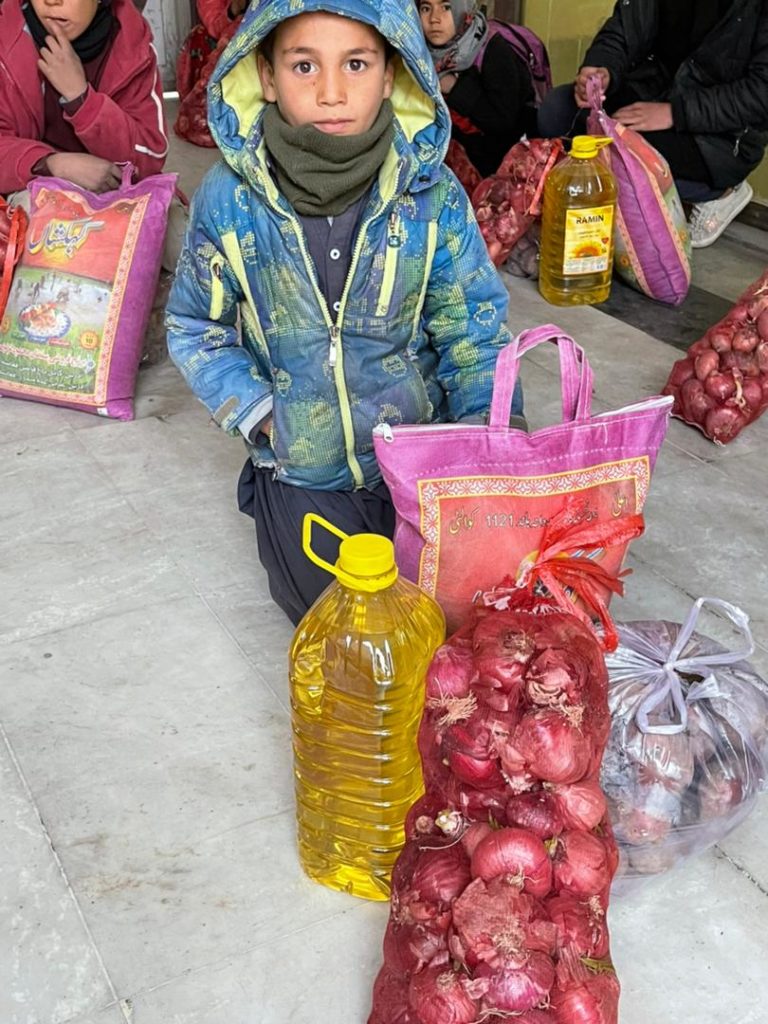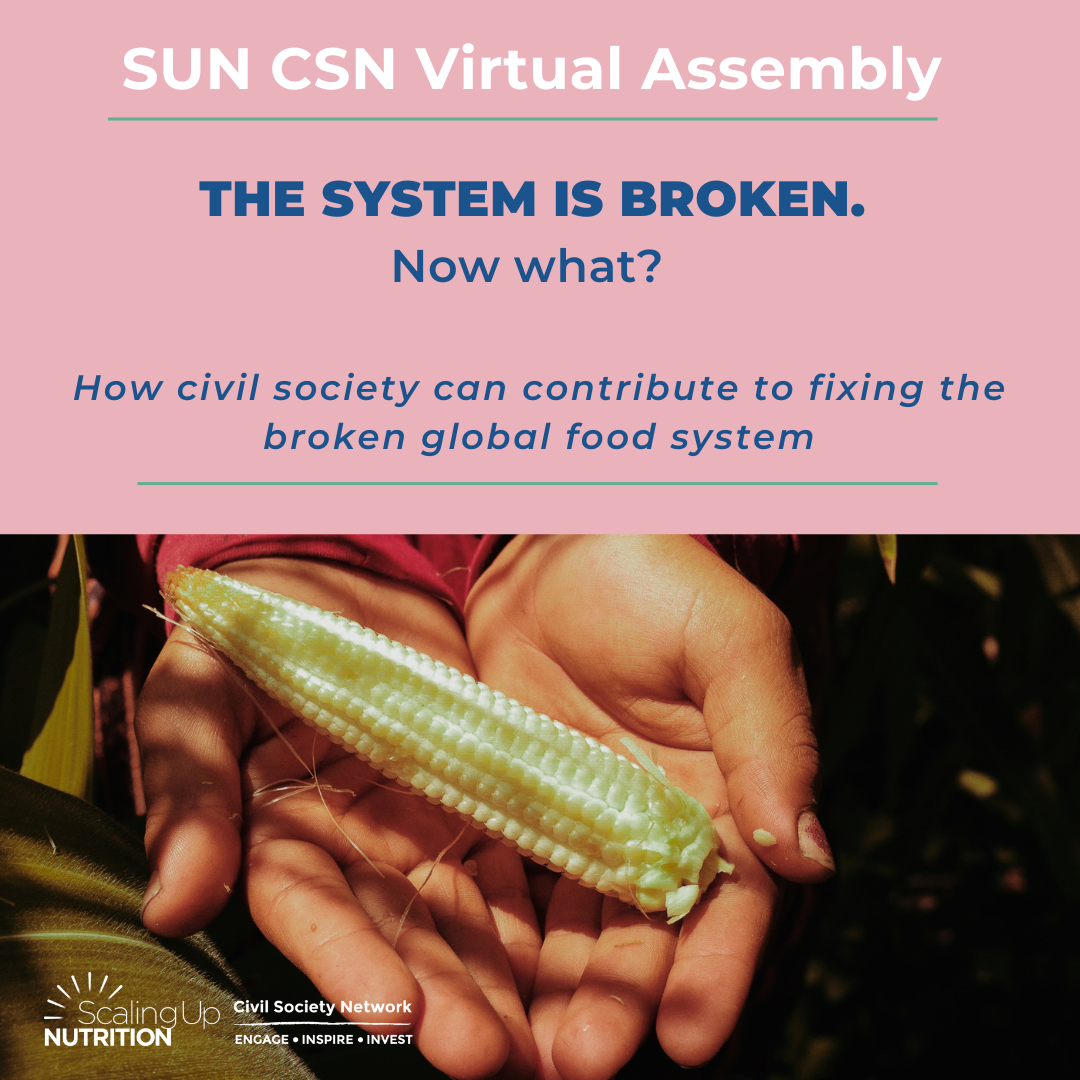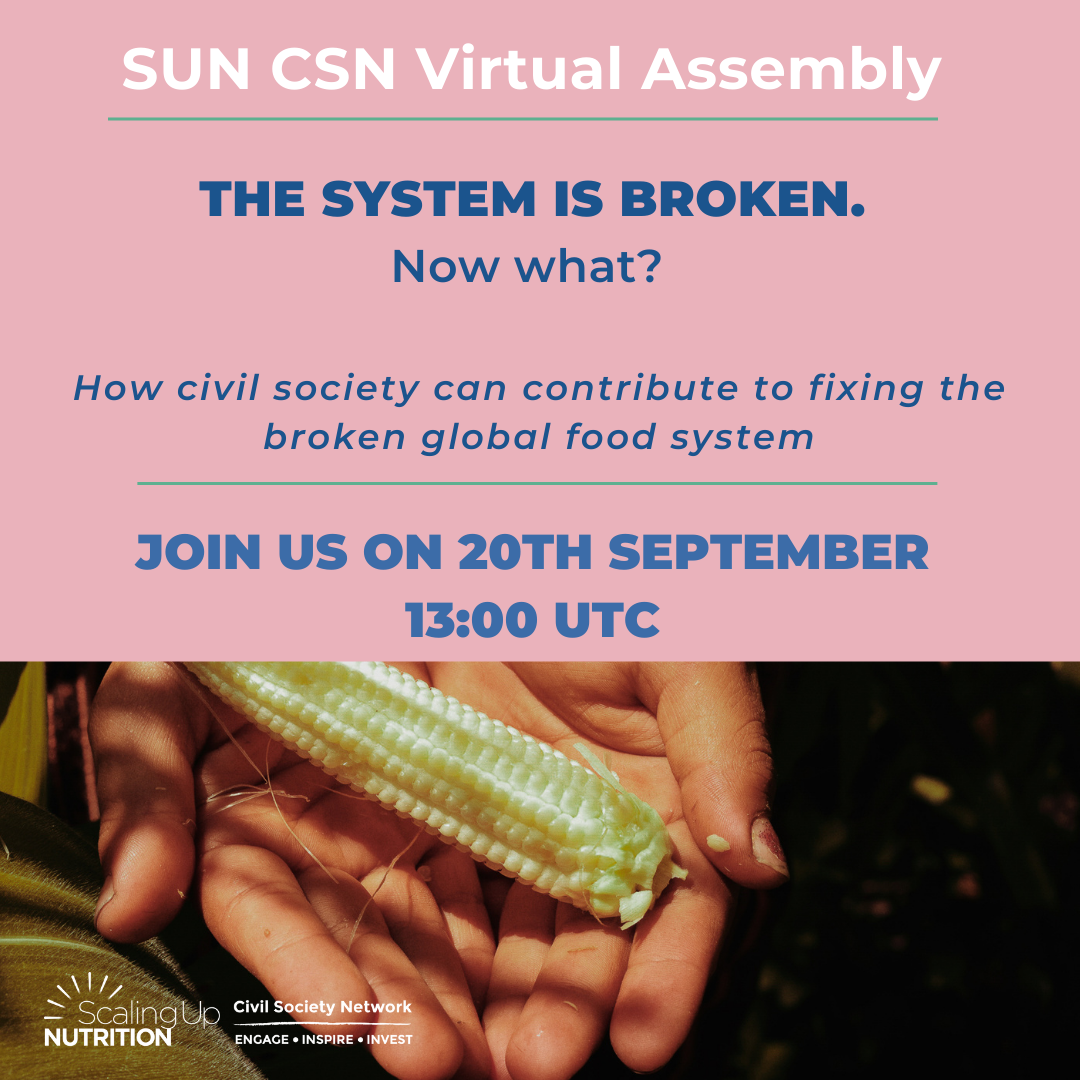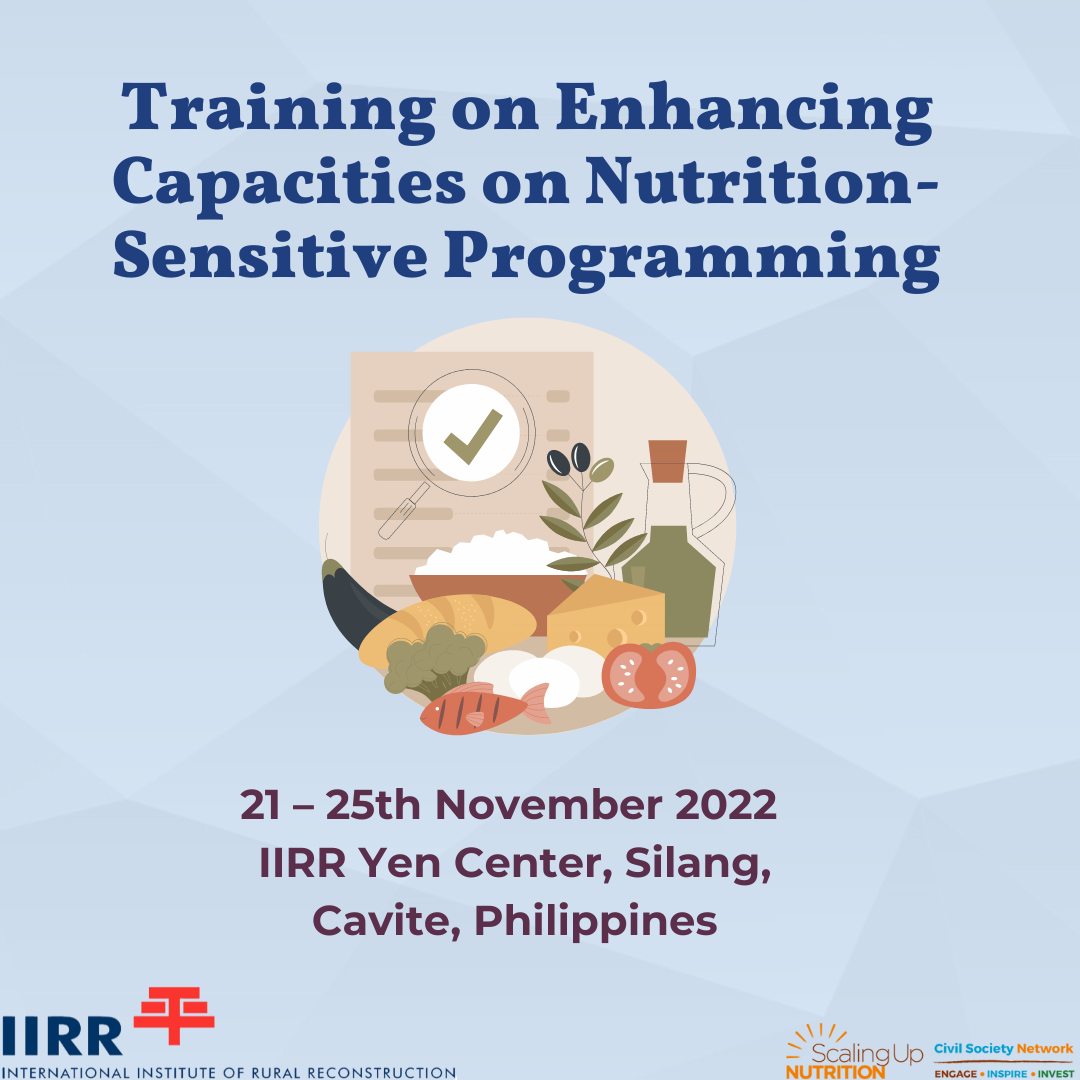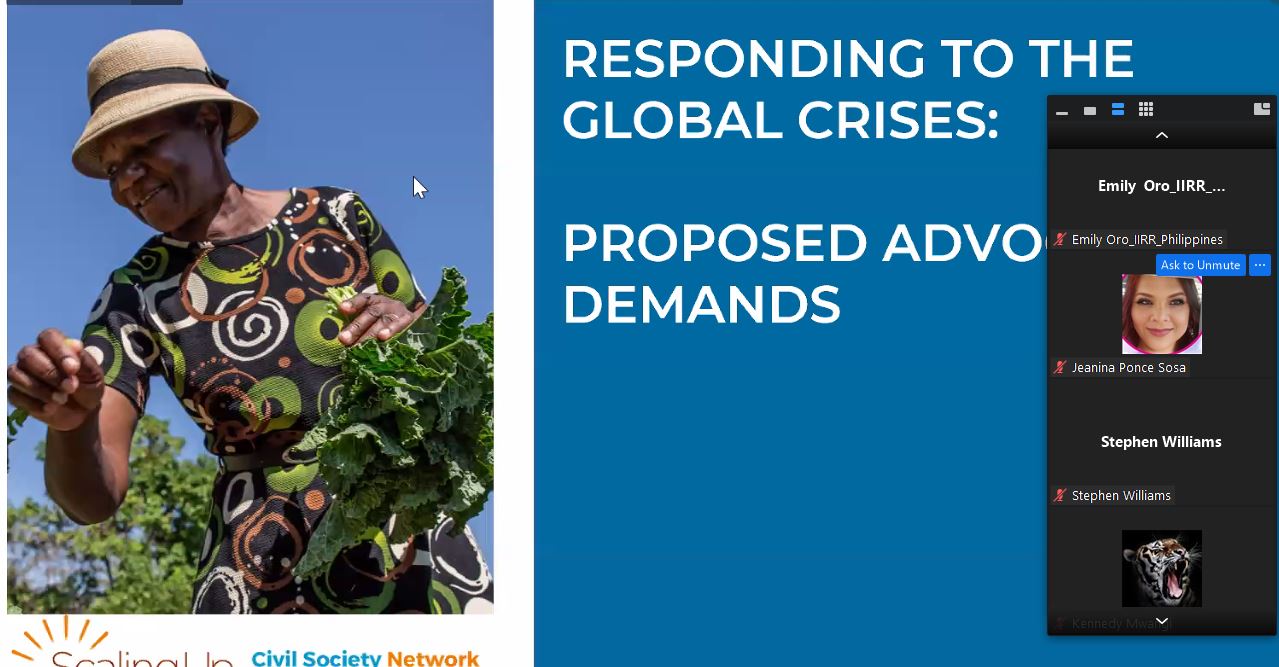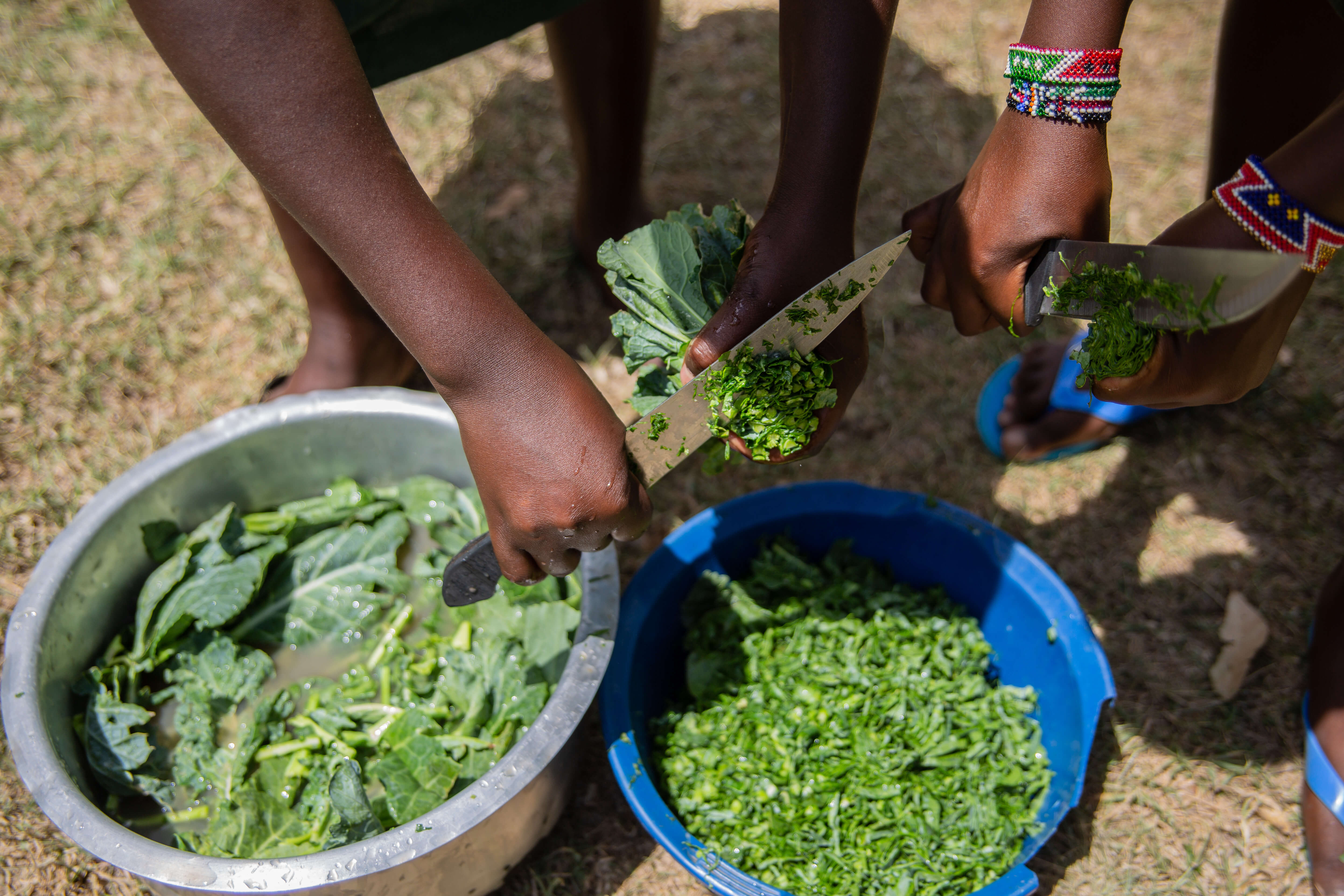Since 2018 SUN CSN has run a small grants programme, which invites interested & eligible CSAs and their members to apply for small grants, to implement and pilot small projects for research or innovation purposes over a 6-month period. Between 2018 – 2022 The SUN CSN Small Grants Programme has run four cycles of funding […]
ReadAll Advocacy news
Select any topics you are interested in to filter news articles.
We are all accountable
One year on from the Nutrition for Growth (N4G) summit, SUN CSN launches a social accountability campaign to hold stakeholders to account for promises made. The SUN Civil Society Network, along with the support of network members and global partners, want to see that the bold commitments we all made for nutrition become a reality! […]
ReadThe system is broken, now what? Five things we can do to make our advocacy demands a reality.
This September 2022, our members gathered again for a Virtual Assembly, the second of its kind. The objective was to agree upon the practical steps to deliver on a set of advocacy demands that emerged through a consultative process after our first virtual assembly. With the overarching goal to mitigate the impact of ongoing and […]
ReadGet Involved with the Latest CS Network Assembly!
Our first ever network-wide Virtual Assembly took place in May against the backdrop of ongoing global crises, which have seen food prices rise and access to adequate nutrition further diminished. Together, CSN members discussed how communities have been impacted and what we needed to change in the global food system to mitigate the impact of […]
ReadTraining on Enhancing Capacities on Nutrition-Sensitive Programming
November 15-16th 2022 (virtual) 21 – 25th November 2022 (in-person) IIRR Yen Center, Silang, Cavite, Philippines Application deadline: 27th September Malnutrition and hunger continue to afflict children and adults alike across the world, affecting their growth, development, and productivity. If unaddressed, undernutrition has serious short and long-term consequences for a child’s development. Access to, and […]
ReadThree things we learnt from the first Civil Society Network assembly
This week saw over 60 members of the SUN Movement’s Civil Society Network (CSN) come together from countries all around the globe in the first ever network-wide assembly to discuss experiences and solutions surrounding the current global food crisis and to create tangible advocacy demands as a network. The discussion was full of ideas and […]
ReadThe SUN CSN to host its first network-wide assembly on global crises
Summary The Civil Society Network Secretariat (CSNS) plans to organise a series of meetings with CSN Members to come together and share experiences and perspectives on how the global commodity price increases are impacting nutrition in different contexts. The event on May 25th will be offered as the first of an ongoing series of global […]
ReadSUN CSA Vietnam goes digital! How AI technology is helping to fight Code violators in Vietnam.
Our Civil Society Alliance in Vietnam, led by Alive & Thrive, and thanks to FHI Solutions’ Innovation Incubator, have teamed up with artificial intelligence (AI) company Hekate. Their aim? To try and end exploitative marketing of commercial milk formula and related products within the scope of the BMS code, on the digital frontline. Hekate, a […]
ReadUkraine conflict highlights the fragility of the global food system and will have damaging impact on nutrition of the most vulnerable, warns SUN Movement’s Civil Society Network.
Members of the SUN Movement’s Civil Society Network are already reporting food shortages and escalation in prices due to the ongoing conflict in Ukraine, which will have knock-on effects on the state of nutrition globally. The Russian Federation and Ukraine are among the most important producers of agricultural commodities in the world. Organisations such as […]
ReadLife under the Taliban: Obstacles faced in Afghanistan
Part 4: Being a child in Afghanistan Written by Zuhra Dadgar-Shafiq, Programme Director and Co-Founder of Action for Development who provide vital health and education services in Afghanistan to the most marginalized and vulnerable individuals through cost-effective, cascade-model projects that allow for community participation and empowerment. Afghanistan has been struggling with conflict for over 40 years. The situation […]
ReadSubmit news article
If you’re part of a SUN Civil Society Network and want to share a news article, submit it by filling in the contact form and selecting “Submit a news article in “Reason for contact” so that we can review and publish it.
Part 4: Being a child in Afghanistan
Written by Zuhra Dadgar-Shafiq, Programme Director and Co-Founder of Action for Development who provide vital health and education services in Afghanistan to the most marginalized and vulnerable individuals through cost-effective, cascade-model projects that allow for community participation and empowerment.
Afghanistan has been struggling with conflict for over 40 years. The situation has recently been exacerbated due to the dire political context and the takeover of the Taliban resulting in social, economic and political instability in the country that has left many people in extremely poor conditions. Currently, it is expected that around 55% of the population (almost 20 million people) will be in food crisis emergency phase 3 and 4 . The WFP has confirmed that one in two people in Afghanistan do not have enough to eat at least once a day.
In addition to the ongoing protracted conflict, the climatic conditions add a burden to the agriculture sector that is suffering from limited investment and low productivity. The food crisis is on the rise caused by the extreme poverty conditions and extreme weather and climatic conditions. Poor pasture conditions and high food prices driven by drought have left over three million livestock at critical risk during winter and has already resulted in increased distress livestock sales. Climate change has caused declining precipitation, putting additional pressure on water resources already strained from population growth. In addition to the drought, more than 29,000 people in 13 provinces were affected by other natural disasters– mostly floods.
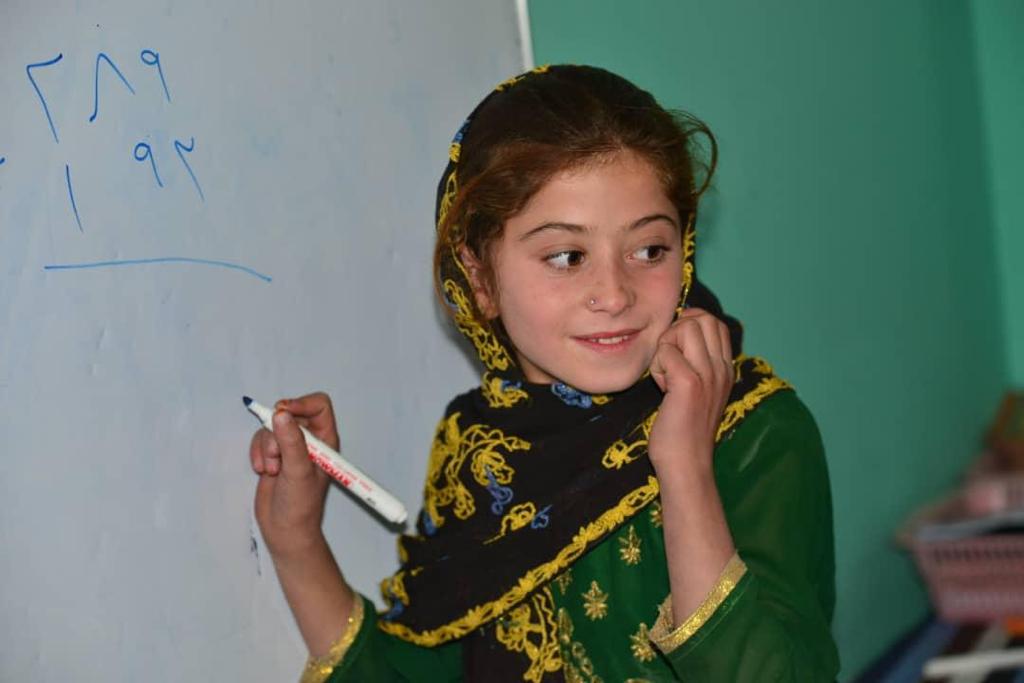
During these times of conflict and insecurity, children are living under extremely poor conditions, with no access to food, safe drinking water or even shelter. There are fewer health services reaching children, many are even missing out on life saving vaccines. Children have no access to education and instead are working on the streets to support their families. Winter conditions increase the risk of pneumonia and acute respiratory illness. Millions of children continue to need essential services, including primary healthcare, life saving vaccines against polio and measles, nutrition, education, protection, shelter, water and sanitation.
Mansoor, for example, is 13 years old. His father was killed during a fighting between Taliban and previous government in Jawzjan province. He has five younger siblings. His mother had to come to Kabul with the children seeking assistance. Currently she is begging on Kabul streets. Mansoor looks strong but is prone to infections and very often falls sick. He is the breadwinner for his family and helps his mother. He is illiterate, but once his friend told him about the school which provides food for lunch and teaches him to read and write. Mansoor decided to join this school and have at least his lunch at the school (he is now one of the students at AfD school for street working children).
At home they do not have enough food for everyone, and his younger sister and brother always cry for food. Mansoor says that his daily food consists of boiled potatoes and boiled beans. They can’t afford to have fruits, vegetables, or dairy. Mansoor takes his five-year-old brother along and teaches him how to wash a car. When his mother leaves the house to go begging, she locks Mansoors’ younger brothers and sisters (the second sibling is 10 years old) inside or takes all of them together with herself.
We would urge that actions should be taken through schools and that they provide lunch to students. This action would ensure that children are receiving food at the same time as they come to get education. It would also support the families economic situation and would encourage their children to go to school, instead of working on the streets.
